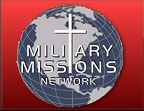What will happen to Iraq’s Christian ethnic minorities when the Americans leave?
Chaldeans and Assyrians once ruled great empires from Babylon and Nineveh respectively. Their Christian institutions are among the oldest in the world. Their language is the world’s closest to the Aramaic that Jesus spoke. Their Syriac New Testament is the oldest of all New Testament translation traditions.
Even after the 7th century Arab invasions, they maintained regional majorities and cultural dominance until the 13-14th century withdrawal of invading Mongols with whom they had sympathized against Arabs rulers.
In the ensuing backlash of persecution they became a minority. In the early 20th century, they allied with the colonizing British. Then, they were halved in size and influence again in persecutions that followed the British withdrawal.
All of this history jumps from the pages of Philip Jenkin’s new book, The Lost History of Christianity.
Less obvious may be how Iraq’s ethnic Christian minorities may also have only themselves to blame. After all, they’ve had over a thousand years of living among Arabs in which to convert them. Today that job is falling to others.
In the video clip (above) pay close attention to the final interview with one of Iraq’s ethnic minority Christian leaders. If he speaks for the consensus in the historic minority church that is in Iraq, then that might explain why they are being removed from the Middle Eastern scene.







 Act Beyond
Act Beyond http://www.faithandwar.org
http://www.faithandwar.org Mark Durie's Blog
Mark Durie's Blog Military Missions Network
Military Missions Network The Christian Fighter Pilot
The Christian Fighter Pilot The Navy Christian
The Navy Christian